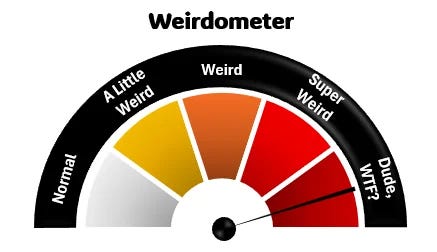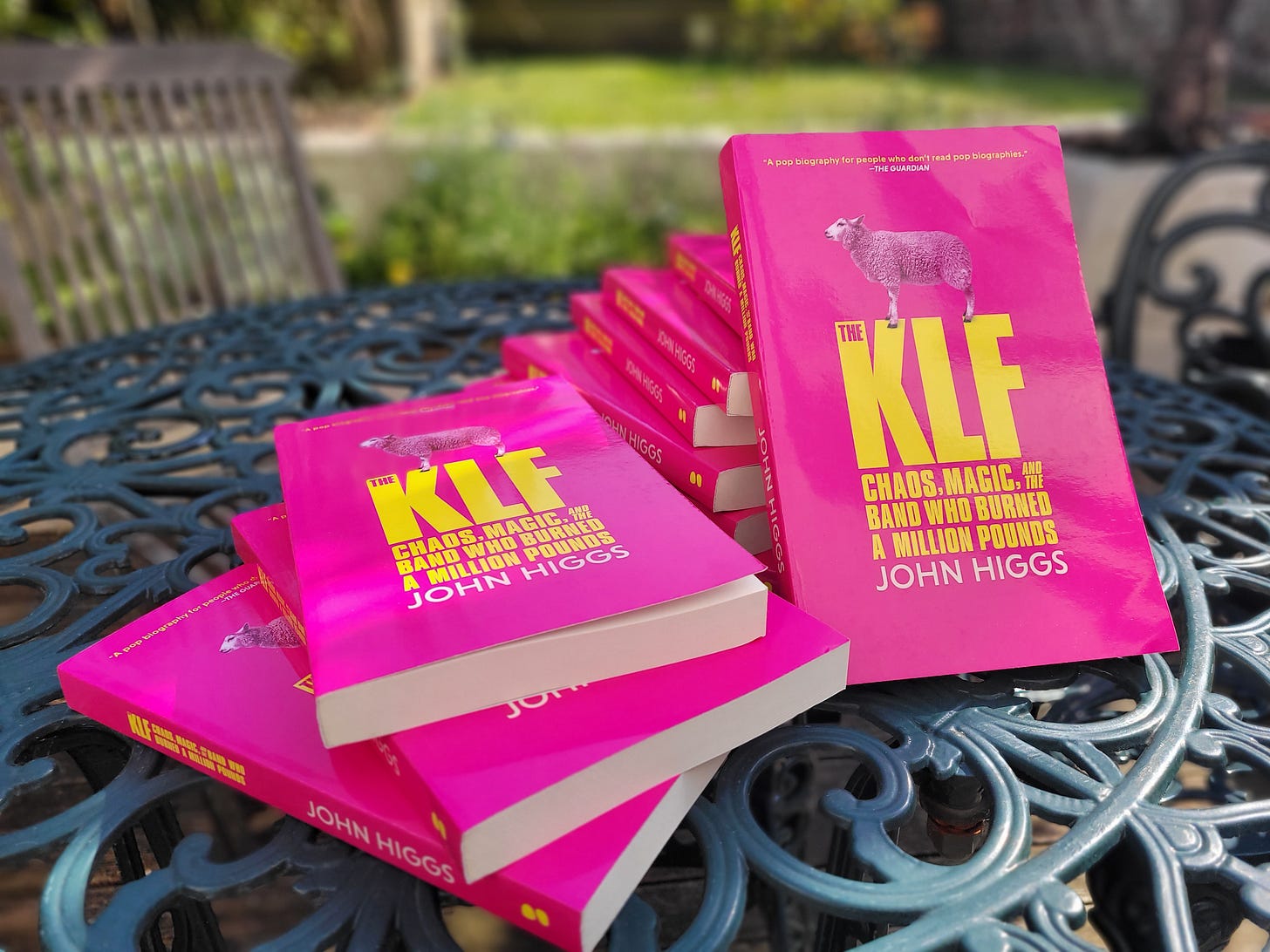Immediately after the attempted assassination of Donald Trump – and the release of that fist-pumping photo with the American flag and the bloodied ear - two contradictory viewpoints emerged. The first came from political journalists, who saw this image as being historic and of profound political significance. The other viewpoint came from the very-online contingent, who argued that we’ll have all forgotten about it in a couple of weeks.
In a way, they were both right. It has already dropped out of the conversation. Once Harris replaced Biden, a different political narrative kicked in and the assassination attempt very quickly became old news. Yet in years to come, whenever someone looks back at right-wing American politics of the 2020s, that is the image they will use. It defines a particular point in time away from the froth of day-to-day events. Even if you don’t like the political story it tells, you still recognise that it tells that story well.
A similar contradiction occurred with the Paris Olympics opening ceremony. Watching it live was, at times, a bit of a chore, if I’m honest. It felt disjointed, overlong, choppy and confusing. Despite my attempts to make sense of all that was happening, I was often at a loss as to what it all meant. When you look back at it with hindsight, however, all the waffle falls away. What you remember are the potent bits – Gojira, the cauldron in the balloon, the horse, Celine Dion up the Eiffel Tower and so on. With hindsight, it was ambitious and provocative, and it did France proud. Despite the hours and the excess, you are left with moments that stay with you.
The ceremony was a lot like modern digital culture. We are bombarded with seemingly unconnected ideas and images until the overwhelming reaction they provoke is exhaustion. Recently, this endless outpouring of meaningless content has been given the name ‘slop’, a naming I like very much. Slop is particularly associated with AI used to game platform metrics – such as AI music on Spotify playlists or bots talking to bots on social media – but it is also used for uninspired corporate content that artistically does not need to exist.
But although we have a word for slop, we don’t have a word for not-slop – the moments in the cultural outpouring that stick with you and have long-term significance. Part of the problem is that the exact nature of these things are hard to define. It’s not just the case that they are the ‘good bits’, because plenty of work that is technically good doesn’t count. They are not necessarily things that you like, as the Trump photo illustrates. They are often divisive and critically lambasted, and yet they can act as a distillation of a cultural movement into a single idea. They can function as narrative beats in much larger stories. They are, above everything, highly potent. What name would you call something like that? Finding the right word is not easy.
Naming something is powerful. In the last week, the Harris campaign have started referring to Trump and Vance as ‘weird.’ This is an attack that seems effective because Trump and Vance are weird, and not in a good way. Yet they are not any weirder than they were before they were named in this way. Naming something brings it into focus. It gifts it greater significance. It makes it hard to ignore.
Sometimes a flawed name can be as bad as no name at all. When I was growing up in North Wales, the act of going somewhere with no real purpose other than to explore and see what happens was innocently known as ‘knobbing about’. We might decide to go to Chester at the weekend to knob about, for example, or alternatively, to ‘knob around’. Discussing this in the pub recently, I discovered that the phrase was common in Telford, but not Devon. The closest that Devonians had was ‘bimbling about’, but this was not quite the same thing. Bimbling about was fundamentally passive. Knobbing about involved a more involved, active state of mind. Although it has no fixed plan, it is not ‘knocking around’ - which is typically aimless and bored. Whenever you see cartoon characters going places, they are usually knobbing about.
After I left North Wales, I learnt that if you suggest to someone from a different part of the country that you go and knob about, they tended to be horrified and appalled. They would assume that you were suggesting some scenario of depravity and, as a result, I stopped using the phrase. This is still something which I still feel a sense of loss about. Going somewhere to knob about was basically great. It captured something of the value of being alive. It is a terrible thing to lose, for want of a suitable name.
If knobbing about had a socially acceptable name, would people do it far more than they do now? The act seems quite alien to the anxiety-riddled younger generation, who I wish could enjoy more carefree knobbing about.
I suspect there are many similar powerful and wonderful things in our blind spots, waiting for the right name to be spoken so they can reveal themselves and be recognised. This is why I hope that we find a name for the non-slop moments, because moments of enduring significance are not only found in history and culture. They occur in our own lives too. They map out the stories that make us who we are. Naming the slop has made it visible - but look past it, because it’s the nameless non-slop that matters.
NORTH AMERICAN RELEASES
As of yesterday, I’m delighted to say that I Have America Surrounded: The Life of Timothy Leary is back in print in North America - and available for the first time as an audiobook, read by me. You’ll find it in this new, none-more-groovy cover:
It’s an interesting time for this book to reappear. When Timothy Leary was at his lowest point in jail in the 1970s, he focused on a philosophy he called SMI2LE. This stood for Space Migration, Intelligence Increase and Life Extension. These ideas took the concept of freedom and projected it out into space in the far-off future. They may have been delusional, but in the context of his imprisonment they helped keep him going.
It’s interesting that Silicon Valley billionaires are currently obsessing over the exact same set of ideas - now going by the terrible acronym TESCREAL. The golden prisons of today’s tech billionaires may be entirely mental, but mind forged manacles are powerful things. Great wealth does isolate, and it leaves its victims unable to connect with other people. That the mega-rich are fantasising about freedom and escape in the far distant future, like Leary at his lowest, reveals something about what their lives are like now, I think.
Also available for the first time in the USA and Canada is The KLF: Chaos, Magic and the Band who Burned a Million Pounds. I’ve just received my copies and they look fantastic. I was interviewed about the book over at Something Good, you can read that here.
OTHER BUSINESS
I’ve popped up on a few podcasts in the last few weeks. I’m on Copyright Waffle discussing copyright, and much else, because they bribed me with scones and jam and cream, and that clearly works. You can find that here.
I’m also on the Cineclub podcast talking about cinema, James Bond, the Beatles, the KLF and the East Sussex Psychedelic Film Club. And for more Bond/Beatles and general spy shenanigans, I also had a great chat with Andy over at Spybrary.
One last thing - you might remember that in my last newsletter, I talked about the state of William Blake’s cottage in Felpham, and the efforts of the new Blake Cottage Trust to save it. I just wanted to share this photo, to show that work to protect it has begun. There is still a lot of money to raise for actual repairs, but a ‘tin hat’ has been installed to protect the building and stop it deteriorating further. Its just a start but its great to see.
Until next time,
jhx











How about 'messing around'? Definitely active. Or pissing around for the less polite :)
Love this - I hadn't heard the term "slop" but this is something I've been thinking about, how much content there is that is thin, just doesn't need to exist and adds nothing to your life but whiles away hours. And also how, sadly, creative people are being encouraged to add to this with regular social postings even if there's nothing to say.